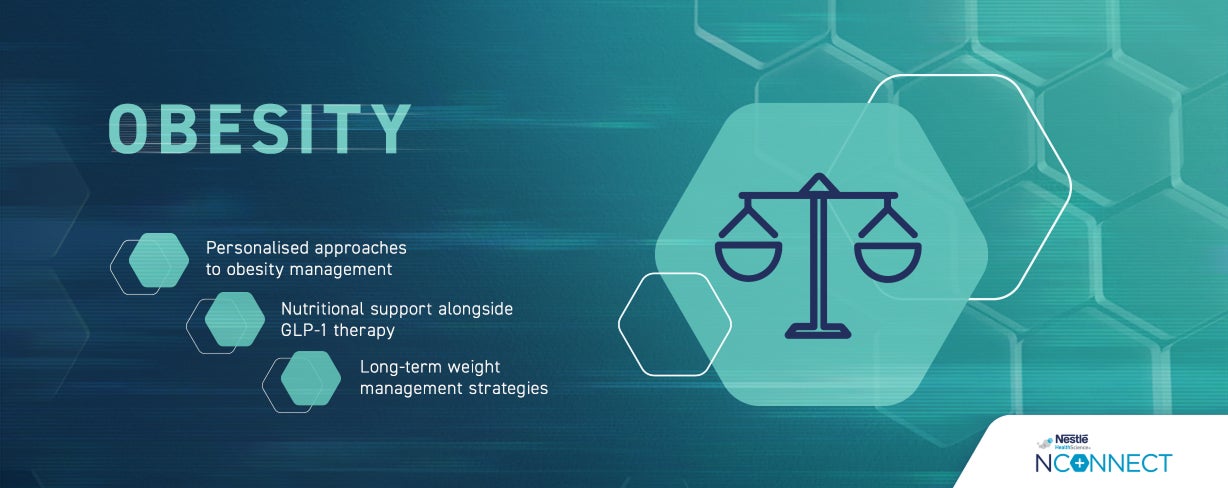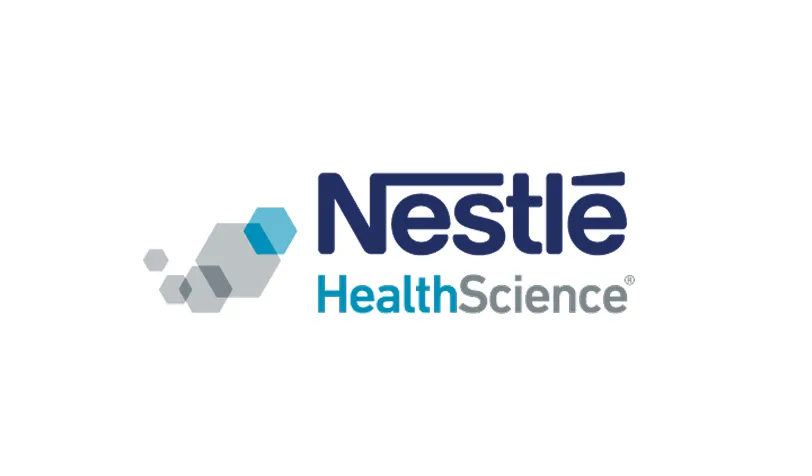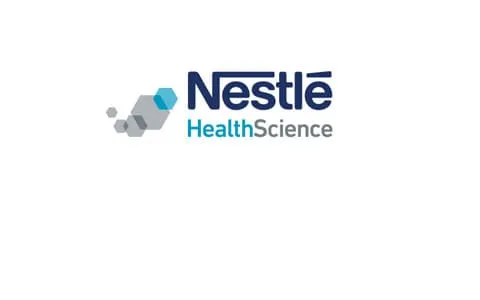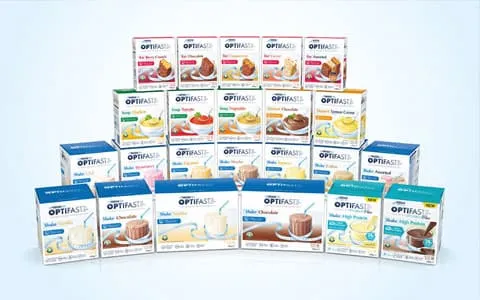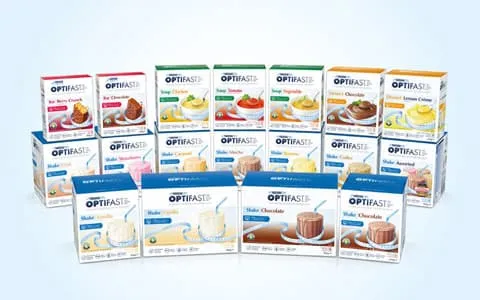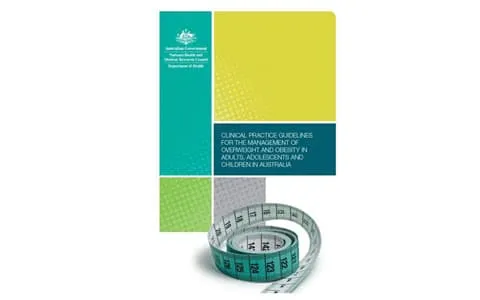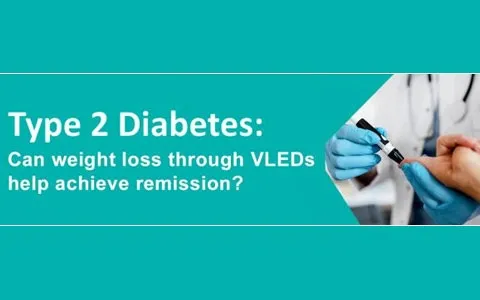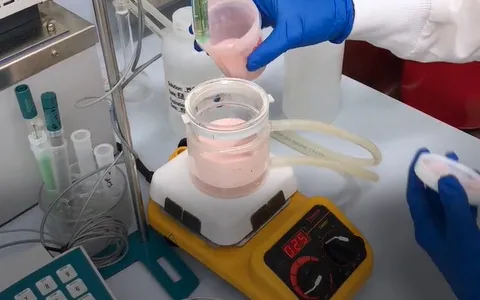Obesity
Highlight of the month

Nutritional Approaches to the Prevention and Remission of Type 2 Diabetes and Weight Management
This webinar from the 81st American Diabetes Association presented by Dr. Ian J.Neeland and Professor Roy Taylor, discusses the current and emerging novel non-pharmacological approaches to the prevention and remission of type 2 diabetes, weight management, and CV risk reduction. This webinar also explores how visceral fat plays a role in the pathogenesis of obesity and co-morbidities.
See moreThis online resource is a patient information booklet highlighting the VLED diet required 2 weeks before bariatric surgery including sample meal plans and recipes. This pre-bariatric surgery patient information booklet covers why the diet is necessary pre-surgery as well as some of the challenges that patients completing the VLED may come across.
An online patient brochure explaining what protein is and the importance of optimal protein intake during the process of weight loss. The brochure also outlines the key features and benefits of OPTIFAST VLCD Protein Plus Shake products and how patients can utilise the Protein Plus Shake products as part of the OPTIFAST VLCD Program.
This retrospective review evaluates real world clinical experience of concomitant use of meal replacement products and GLP-1 RAs in Australia and South Africa. The results illustrate that this combination for weight management is feasible in real-life and may offer potential advantages for weight management.
This study aimed to determine the demographic, eating, self‐efficacy and program engagement characteristics of VLCD users in Australia (regular vs. intermittent users) and associations with self‐perceived program success on weight loss, quality of life (QOL), mental health and physical health.
Would your patients on GLP-1 RAs benefit from nutrition support? OPTIFAST VLCD products can help meet nutritional requirements when appetite is affected by GLP-1 RA therapy.
One challenge that arises after the completion of any weight loss therapy is weight regain. OPTIFAST VLCD products can be beneficial to help individuals maintain nutritional balance and reduce overall caloric intake to support continued weight management.
Learn about new Australian clinical evidence on the impact of the very low energy diets for Type 2 Diabetes remission. The DiRECT-Aus trial confirms that that an intensive lifestyle intervention (very low energy diet) delivered in an Australian primary care setting to individuals with recently diagnosed type 2 diabetes results in remission for one in two participants. The study was supported by Diabetes Australia (not-for-profit organisation), and 5 public health networks. Nestlé Health Science donated OPTIFAST VLCD product for the duration of the trial. Click here to view the video.
The OPTIFAST Diabetes Management Guidelines have been developed to assist healthcare professionals manage patients with diabetes and excess weight who may be at greater health risk.
Lifestyle interventions are an important component of any pharmacological and surgical treatment. One such lifestyle intervention for weight management is Intermittent Fasting. These guidelines have been developed to provide guidance to healthcare professionals in the use of the OPTIFAST VLCD Program for Intermittent Fasting.
Proceedings from a webinar from the 81st American Diabetes Association discusses the current and emerging novel non-pharmacological approaches to the prevention and remission of type 2 diabetes, weight management, and CV risk reduction.
A pre-operative protocol addressing obesity management pre & post-bariatric surgery and general surgical procedures to minimise surgical and post-surgical risks. The protocol highlights the fact that with the increase in bariatric surgeries being performed, there is an increased need for preoperative weight loss. This has been driven by the necessity to optimise the safety of surgery.
This product range card provides a list of nutritional information and ingredients lists of OPTIFAST VLCD products that are available in Australia. The following RESOURCE provides nutritional information for products from the OPTIFAST VLCD shakes, bars, Protein Plus shakes, desserts as well as soups range.
The OPTIFAST VLCD Clinical Treatment Protocol is a step-by-step guide on how to recommend the OPTIFAST VLCD Program to patients. If you are new to the OPTIFAST Program, we recommend reading this protocol first, followed by our supporting protocols (Management of complex cases, Preoperative, Fertility protocols). This protocol is suited to general practitioners, specialists, dietitians, pharmacists, surgeons, diabetes educators, exercise physiologists, researchers and specialist practice nurses.
An online resource which lists low carbohydrate vegetables, beverages, condiments & sauces that are permitted on the Intensive Level of the OPTIFAST Very Low Calorie Diet Program. These additional low calorie foods can help add variety and assist in compliance for those who are utilising the OPTIFAST VLCD program. Additionally, foods that should be avoided are also listed.
A protocol addressing the dietary management of overweight and obesity in female and male infertility, pregnancy, inter and postpartum, endometriosis and polycystic ovarian syndrome patients using the OPTIFAST VLCD Program. The protocol also provides information on what the the OPTIFAST VLCD Program is, how it has been developed and reviews clinical evidence for the conditions above.
This product range card provides a list of nutritional information and ingredients lists of OPTIFAST VLCD products that are available for purchase and consumption in New Zealand. The following RESOURCE provides nutritional information for products from the OPTIFAST VLCD shakes, bars, desserts as well as soups range.
A protocol addressing treatment guidelines for those with co-morbidities: Heart Failure, Renal Disease, Pharmacological Interactions, Type 1 Diabetes, Type 2 Diabetes, Pregnancy & IVF (please see OPTIFAST FERTILITY PROTOCOL for more detailed information), Hypertension & Hepatic Disease (incl Gallstones).
Summary of evidence focusing on the benefits of weight loss before bariatric surgery.
External Link
In this retrospective observational study it examines the increased nutritional risks in adults who undergo GLP-1 RA therapy, including those with type 2 diabetes, prediabetes, and obesity.
Recent years have seen a surge in popularity of eating patterns involving intermittent fasting as a way to manage and optimise health. This webinar reviews the health and physiological benefits of intermittent fasting, exploring the two most popular forms of intermittent energy restriction (The 5:2 Diet and Alternate-Day fasting).
This research explores participant acceptability, adherence, safety, and experiences of using a short-term total diet replacement and a food-based low energy diet in adults living with chronic kidney disease and obesity.
Markovic, TP. et al 2022 An algorithm has been developed to (i) assist primary care physicians in treatment decisions for non-pregnant adults with obesity, and (ii) provide a practical clinical tool to guide the implementation of existing guidelines for the treatment of obesity in the Australian primary care setting.
Type 2 diabetes mellitus (T2DM) and non-alcoholic fatty liver disease (NAFLD) are highly prevalent diseases associated with an increased risk of morbidity and mortality. Obesity/overweight and dietary intake are important risk factors. Jamy Ard focused on the benefits of meal replacements to promote increased weight loss and increased rates of T2DM remission. Wajahat Mehal discussed sustained weight loss and improved liver health and focused on meal replacements and very-low-calorie diets (VLCD)for the management of NAFLD/NASH.
This podcast, which features psychologist Glenn Mackintosh, discusses the psychological aspects to consider when a client is trying to lose weight, such as what to consider when a client walks into a clinic for weight loss advice, importance of support from a professional and how to help clients normalise lapses and relapses. This podcast was hosted and created by Dietitian Connection.
This pilot randomised control trial tests the feasibility and potential efficacy of remotely supported intermittent low-energy diets (ILEDs) and continuous low-energy diets (CLEDs) in people with type 2 diabetes (T2D). The study demonstrated feasibility and efficacy for remote ILEDs and CLEDs for weight loss and HbA1c reduction.
This podcast, which features dietitian and researcher Gabrielle Maston, explains what VLEDs are and tips and tricks to improve the compliance of patients on a VLED. It discusses the results of the DiRECT trial and the role of VLEDs in diabetes remission. It explores why dietitians are hesitant to prescribe VLEDs and how they can improve their confidence in recommending VLEDs to patients and clients. This podcast was hosted and created by Dietitian Connection.
This review paper addresses questions surrounding the use of very low energy diets (VLEDs) for the management of overweight/obesity. It discusses fast versus slow weight loss and long-term results, as well advantages of VLEDs, side effects, and how it should be used. Behavioural change, active follow-up and pharmacotherapy are also discussed for optimal results.
A randomised controlled trial which investigated the rate of weight loss on the rate of regain in people who are obese (fast versus slow weight loss). The interpretation of the results were that the rate of weight loss does not affect the proportion of weight regained within 144 weeks. These findings are not consistent with present dietary guidelines which recommend gradual over rapid weight loss, based on the belief that rapid weight loss is more quickly regained.
A very low energy diet (VLED) can result in substantial, rapid weight loss and is increasingly prescribed before obesity surgery to minimise risk and difficulty by reducing liver size and abdominal adiposity. This observational study demonstrates the efficacy of using a VLED pre-bariatric surgery for 2-6 weeks.
A randomised control trial investigating the use of energy restricted diets delivered through primary care channels, with the aim of achieving remission for people with type 2 diabetes. Findings show that, at 12 months, almost half of participants on a total diet replacement program achieved diabetes remission.
This review paper explores the properties and current status of very low energy diets (VLEDs) in the management of obesity. VLEDs are defined as diets which contain energy levels of less than 3.4MJ (800kcal) per day and contain daily allowances of all essential nutritional requirements and have been used in clinical settings for over 20 years.
A review and meta-analysis of the benefits of weight management for those who are at risk or have type 2 diabetes. As obesity is a major risk factor for development of diabetes, a systematic review of the medical literature to assess the impact of obesity and weight gain on risk of diabetes and CHD was conducted.
The effects of overweight and obesity are widely recognised as one of Australia’s leading health concerns, involving all age and socioeconomic groups. These Guidelines are designed for use primarily at the level of the individual who is overweight or obese, while acknowledging that individual choices are shaped by the wider environmental and social context. The evidence-based recommendations and practice points focus on clinical and physical aspects of care.
Videos
Join Dr Mark Mellor (GP) and Dr Don Zhang (GP) for a conversation on their thoughts and experiences with weight management tools in primary care, including dietary restriction, VLEDs and GLP-1 RAs. Duration: 15 minutes.
This video abstract provides an overview of DiRECT-Aus trial, which confirms that an intensive lifestyle intervention (very low energy diet) delivered in an Australian primary care setting results in remission of type 2 diabetes for one in two participants.
Join Dr Terri-Lynne South (DP & Dietitian) and Leyanne Duncan (Diabetes Educator, Nurse Practitioner and Dietitian) for a conversation on their experience with the latest strategies and interventions for obesity management, including the usage of GLP-1 RAs and VLEDs as part of a blended approach. Duration: 15 minutes.
We heard from Associate Professor Samantha Hocking from the Royal Prince Alfred Hospital. Samantha talked us through new research conducted by the University of Sydney, Diabetes Australia and five NSW Primary Health Networks on the current evidence for diabetes remission and the positive outcomes of this.
This webinar presented by Dr. Michelle Harvie discusses the application and review of current literature on low energy restricted diets as part of intermittent fasting as as an alternative to weight management and type 2 diabetes. Dr Harvie also discusses the MIDDAS study in respect to it's design as well the findings of the study.
This educational video provides an overview of diabetes and obesity. It briefly highlights the potential issues and challenges that may arise due to obesity and diabetes as well as the current research that is being completed by Nestle Health Science as well as products that are being designed specifically for patients in need of glycaemic control.
In this webinar, Dr. Mehal will discuss the pathogenesis of and NASH, proposed new terminology for Non-Alcoholic Fatty Liver Disease(NAFLD) and current treatment recommendations with a focus on the impact of weight loss on outcomes. Dr. Mehal also provides an overview of the prevelance of NAFLD from a global perspective.
